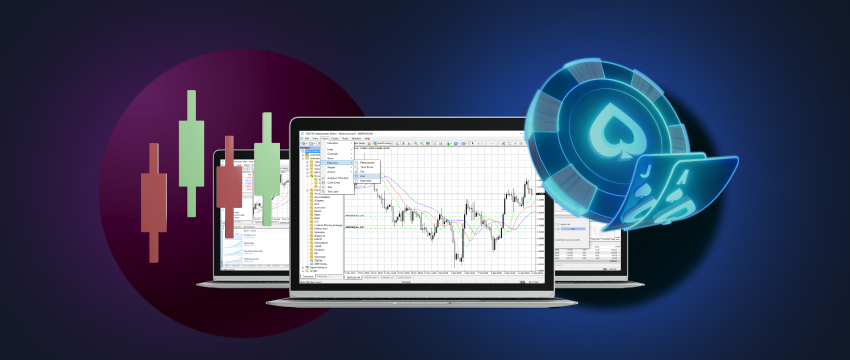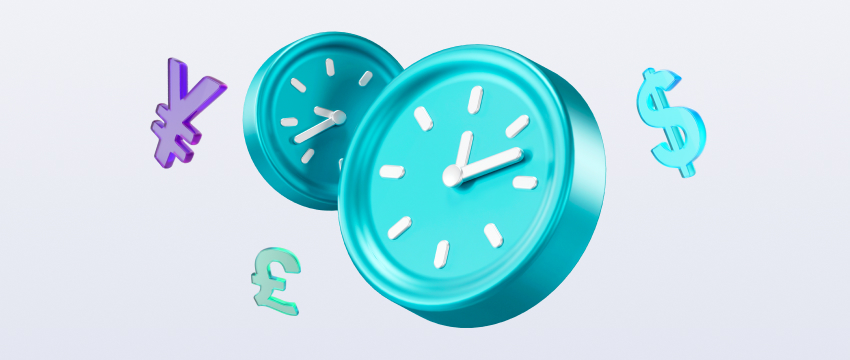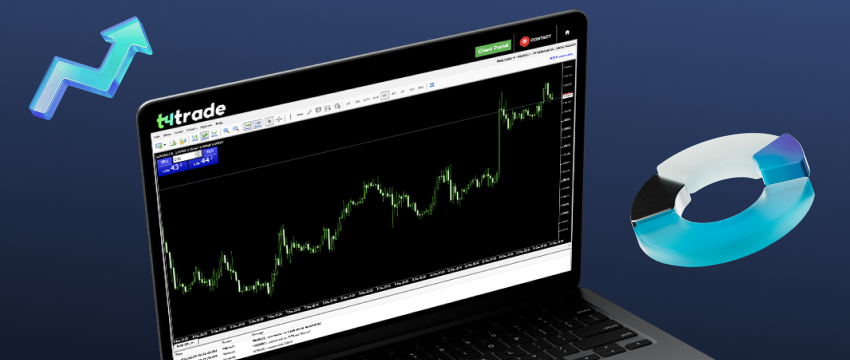The million-dollar question. Is CFD trading a gamble? While the thrill of CFD trading is much akin to that of gambling, there are significant differences. For one, a CFD trader acts on speculation that is based on thorough research and analysis. Gambling is largely based on luck. But let’s explore what makes CFD trading less of a gamble and more of a game based on skill and knowledge in this article.
1. The speculative nature of CFD trading
CFD trading is highly speculative in that traders hypothesize on the price movements of various financial instruments without having to take physical ownership of the underlying asset. Essentially, the trader speculates whether a price will move up or down, and then goes either long (buy) or short (sell), to profit from both rising and falling markets.
Technical and fundamental analysis
How the trader speculates however is what differentiates CFD trading from gambling. The trader typically uses a technique called technical analysis to determine the direction where the market is heading. A technical analyst will look at historical price fluctuations as indicators of future price movements. They study price trends and patterns on charts. There are various indicators that technical analysts will examine to make trading decisions.
These include moving averages, oscillators, momentum indicators, support & resistance levels, volatility indicators, etc. Additionally, they will analyze market trends to establish whether the market is bullish, bearish, or ranging; and will also make use of backtesting.
From time to time, CFD traders may also make use of fundamental analysis. This typically occurs when the trader wants to establish how supply and demand will impact the intrinsic value of an asset. The trader will usually look at factors like economic releases and announcements.
They will monitor geopolitical events like civil unrest, war, etc. The trader will analyze key economic indicators like interest or inflation rates, consumer sentiment, investor sentiment, GDP, employment rates, industry shifts, and the like. A fundamental analyst will also use a tool like an Economic Calendar to track critical releases worldwide, to be able to make informed CFD trading decisions.
An Economic Calendar like the one offered by T4Trade provides global economic news events and indicators at your fingertips. It offers the dates of key releases or events that may have a considerable impact on specific asset prices.

2. CFD trading is an ongoing learning
Another fundamental difference between CFD trading and gambling is education. A successful CFD trader is typically one who engages in ongoing learning to mitigate risks. They seek to gain as much information and knowledge on the key aspects of trading, as well as technical and fundamental analysis, to boost their skills and expertise. This makes CFD trading less of a gamble and more of a learned activity.
Learning can take on a variety of different forms based on how the trader likes to consume content. For the more avid readers, there exist thousands of blogs, articles, e-books, and guides across the internet.
For auditory learners or those who prefer a more visual platform, an extensive variety of videos, podcasts, and webinars are available, which can be accessed online, at any time. This makes learning convenient and super flexible. In addition, traders can also participate in trading seminars in person, engaging with peers for a more personalized experience.
T4Trade offers these forms of educational resources via their Academy. T4Trade traders can access ebooks, podcasts, webinars, Live TV, and a real-time Economic Calendar. Additionally, the T4Trade blog page also covers some of the most popular trading topics, including CFD trading.
Demo trading account
Another way that CFD traders seek to improve their trading capabilities is by using a demo trading account. A demo account provides the trader with a way to practice CFD trading in a risk-free environment, using virtual funds. This means traders can test out a variety of CFD trading strategies and assess outcomes, without putting their capital at risk.
They can use the demo account to learn more about technical and fundamental analysis, with access to real-life market conditions, for a more realistic trading experience. Once the trader has gained sufficient knowledge, expertise, and confidence, they can then move to live trading more seamlessly.
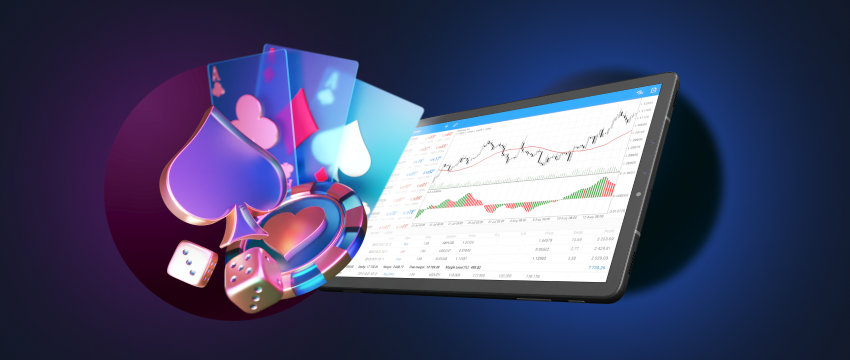
3. Adopting risk management techniques
Unlike gambling which is typically left to luck or chance, CFD traders tend to adopt risk management tools to better safeguard their capital. This is because there are several risks associated with CFD trading that can result in substantial losses for traders.
What makes it less of a gamble though is that techniques like stop-loss or take-profit orders can limit losses or lock in profits. In this way, CFD traders have a higher chance of protecting their money, especially in comparison to someone who engages in gambling.
So what is stop loss and take profit orders specifically?
- In the case of a stop-loss order, a trader will specify a certain price (stop price) at which the order will be triggered. In other words, when the price of a security reaches the stop price, the stop-loss order becomes a market order and the security is sold (or bought) at the best available price. The trigger to buy or sell is dependent on whether you have a stop-loss order to buy or a stop-loss order to sell in place.
- In contrast, a take-profit order is a type of order that specifies the price at which to close a trade for a profit. This enables a trader to lock in gain automatically, without having to monitor their positions continuously.
Stop-loss and take-profit orders are great in that they also remove the emotion from trading decision-making. Trading psychology has the potential to impact trades significantly, particularly if one’s trading is driven by feelings of fear or greed. By having automated tools in place, the need for human intervention is reduced, keeping your feelings out of the process.
4. Long-term investment vs short-term financial gain
Gambling typically involves the pursuit of rapid financial gains. A gambler will usually engage in short-term high-risk transactions to achieve quick returns.
Adversely, a CFD trader has the option of implementing longer-term strategies to maximize potential profits. One such strategy is position trading, whereby the trader will hold onto a CFD for an extended period, ranging from days to months, and sometimes even years.
This form of trading does require considerable patience and the time to monitor the position vigilantly. It also relies on long-term analysis, and in identifying longer-term trends. It may even involve some form of fundamental analysis.
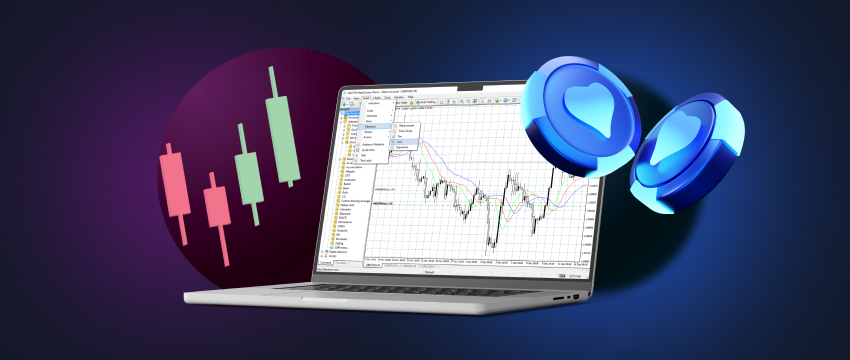
CFD Trading with T4Trade
T4Trade offers traders a flexible trading environment through which they can access over 300 financial instruments from 6 asset classes. This includes shares, indices, forex, futures, metals and commodities. T4Trade traders can also choose from a variety of trading accounts that best meet their needs and align with their goals and level of expertise.
Traders can also enjoy flexible leverage, tight spreads, and quick executions. A multilingual customer support team is also on hand 24/5 to address any of your trading concerns via email or Live Chat.
Disclaimer: This material is for general informational and educational purposes only and should not be considered investment advice or an investment recommendation. T4Trade is not responsible for any data provided by third parties referenced or hyperlinked in this communication.
